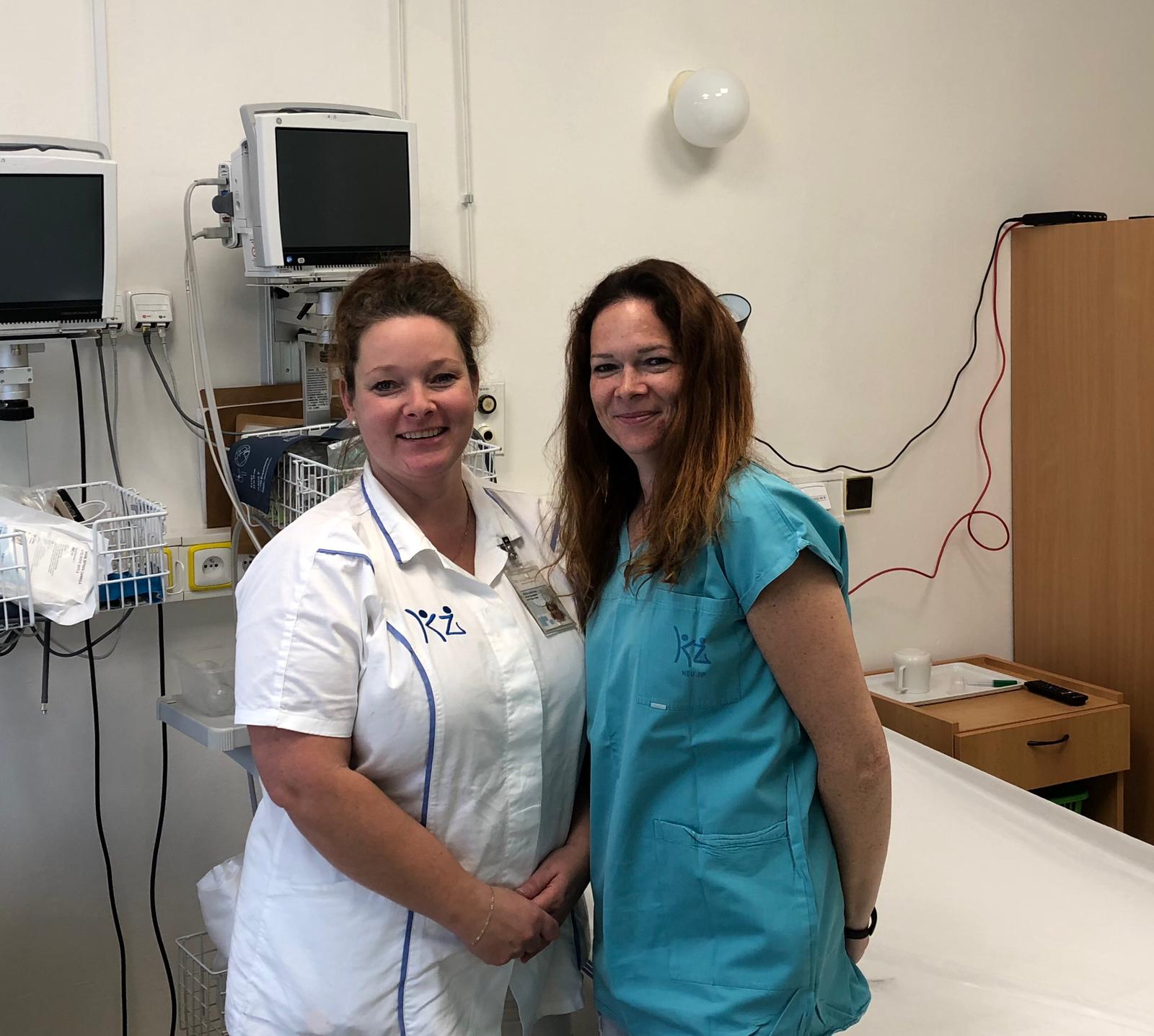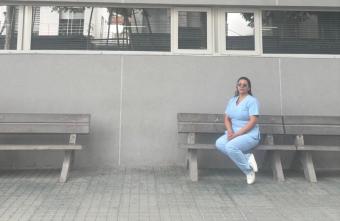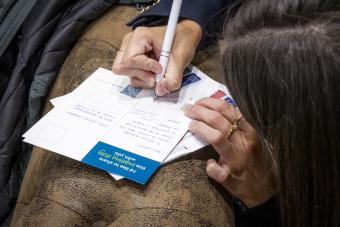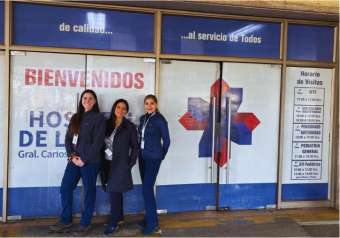Imagine a stroke patient gets admitted to your hospital, undergoes all the necessary evaluations and is treated successfully with recanalisation. Everyone in the team feels they have made a difference. Now imagine all of that being undone because a swallowing screen is not performed on the patient.
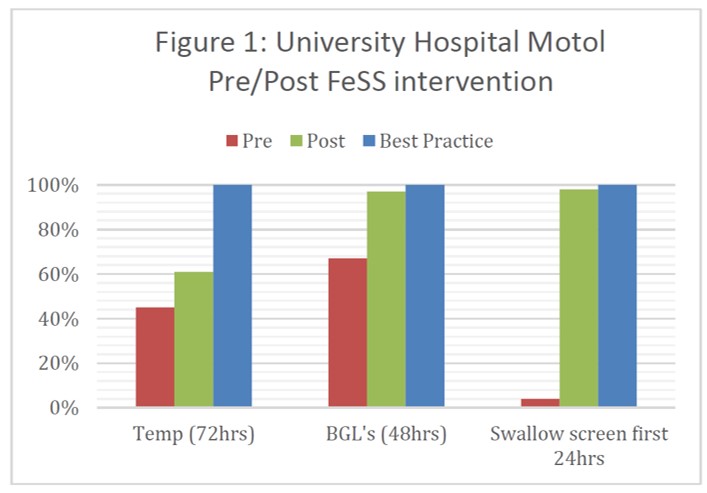 The patient is one of the nearly 70% of stroke patients that has some form of dysphagia. The patient is fed as normal, aspirates, develops pneumonia and dies at home one month later.
The patient is one of the nearly 70% of stroke patients that has some form of dysphagia. The patient is fed as normal, aspirates, develops pneumonia and dies at home one month later.
Organized stroke unit care has been the first thing proven to improve outcomes in stroke and many of the activities performed in the Stroke Unit that provide these improved outcomes are performed by nurses.
One of the first hospitals to take part in the multi-disciplinary nurse-led Quality in Acute Stroke Care Project (QASC Europe); which focuses on the implementation of the Fever, Sugar, Swallow (FeSS) Clinical Protocols, Motol University Hospital in Czech Republic discovered that less than 10% of patients had documented evidence of a dysphagia screen within the first 24 hours. After implementing the FeSS protocols in their hospital this number jumped to nearly 100%! The level of implementation of fever protocols improved from around 45% to about 60% and the glucose protocol implementation improved from around 65% to more than 95%.
Today, with 10 participating hospitals, Czech Republic has the highest hospital enrollment rate in the QASC Europe project, and if the results are anything like the ones achieved by Motol University Hospital, we can expect many patients to benefit.
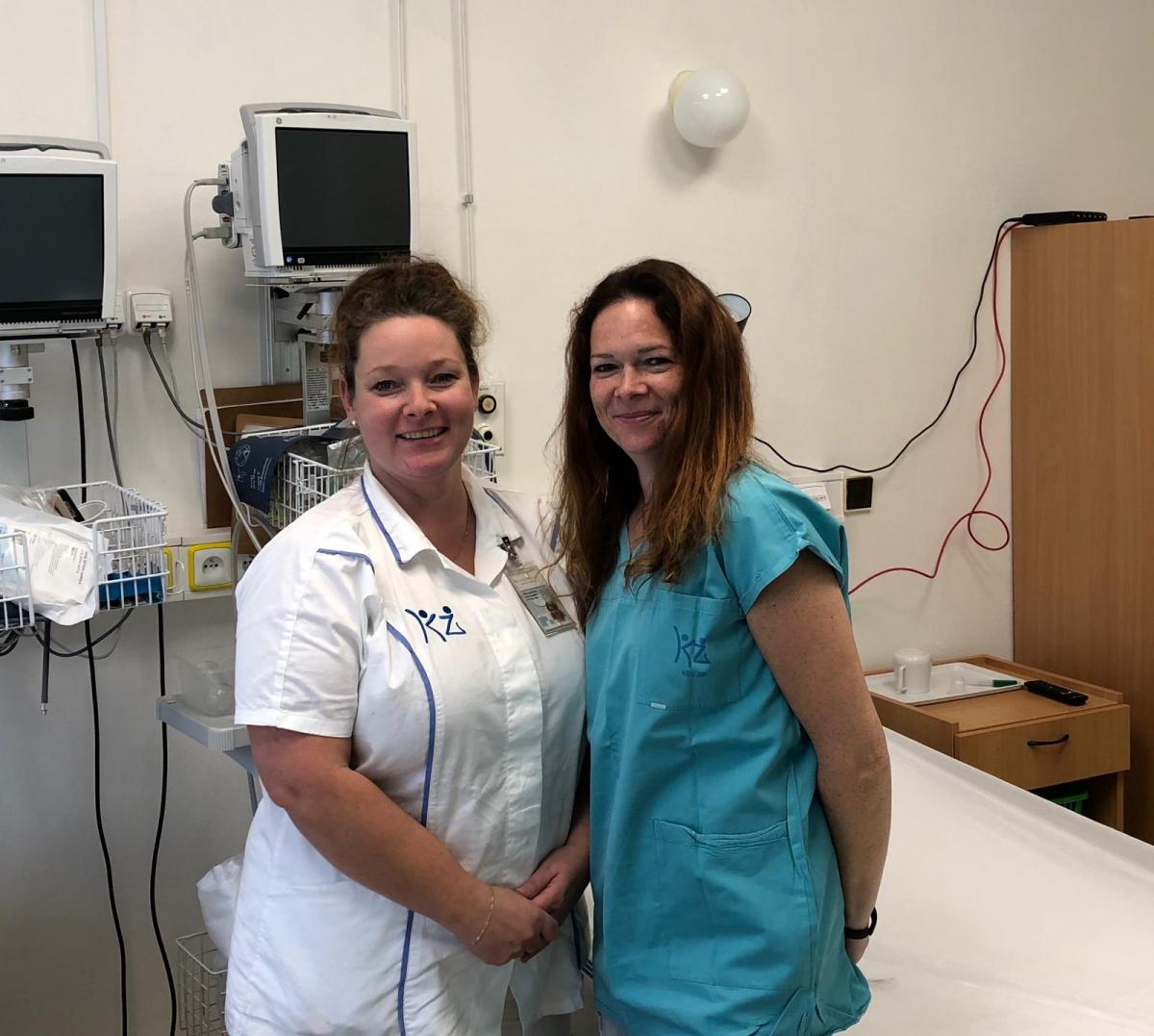
“Before, we did not consider treatment of glycemia, fever and swallowing as essential. The QASC Project helped us implement protocols for management of these vital functions, and now our patients have a greater chance to return to normal lives with decreased disabilities just by adding simple processes to our routine nursing care,” stated Petra Pöschlová (left), Head Nurse of Hospital Chomutov’s stroke unit and Jana Pospíchalová (right), the hospital’s QASC champion.
Inspired by the difference nurses can make, our Angels Consultant for Czech Republic, Robert Havalda, spent a lot of time working with nurses to expand their knowledge and raise their motivation. Working closely with the Czech Cerebrovascular (Stroke) Society and with a lot of support from Mgr. Tereza Koláčná, the Head Nurse of Motol University Hospital’s Comprehensive Stroke Unit and a Spirit of Excellence Awards 2019 winner, we organized Czech Republic’s first Stroke Nurses Congress in June 2019, where we reached the maximum capacity of 80 nurses from almost all centers in the country within just a few weeks of announcing the event.
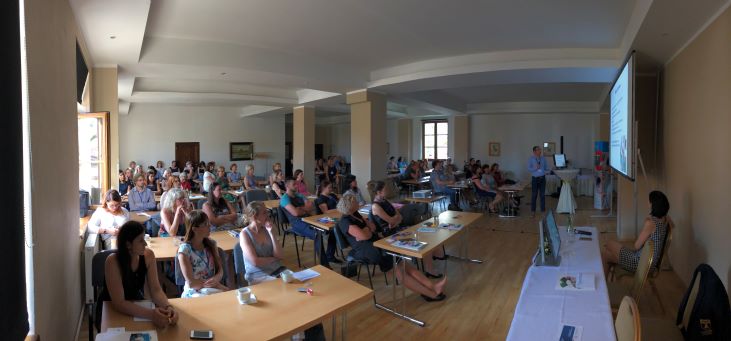
The first part of the congress agenda was about stroke in general: patient pathway starting from EMS, procedures in the hospital, the treatment and the structure of stroke network in Czech Republic presented by neurologists and healthcare staff from the national Angels Steering Committee.
The second part was dedicated to the nurses’ work, and main topics included nurse work in stroke unit, administering treatment, dysphagia, aphasia and rehabilitation. Selected nurses were asked to talk about the stroke unit and patient pathway in their hospitals, which gave everyone the opportunity to see the differences highlighted, ask questions and share experiences.
Throughout the event, there was a palpable sense of excitement and of a new community being formed as nurses from throughout the country were exchanging contacts to stay in touch.
Mgr. Tereza Koláčná claimed that the congress “…has dramatically changed my point of view on the role of the nursing staff in stroke care. I am more aware of nurse irreplaceability in the healthcare system and the necessity of interconnection with physicians and other healthcare staff. I am very glad I had an opportunity to know my nurse colleagues from majority of hospitals in the Czech Republic.”
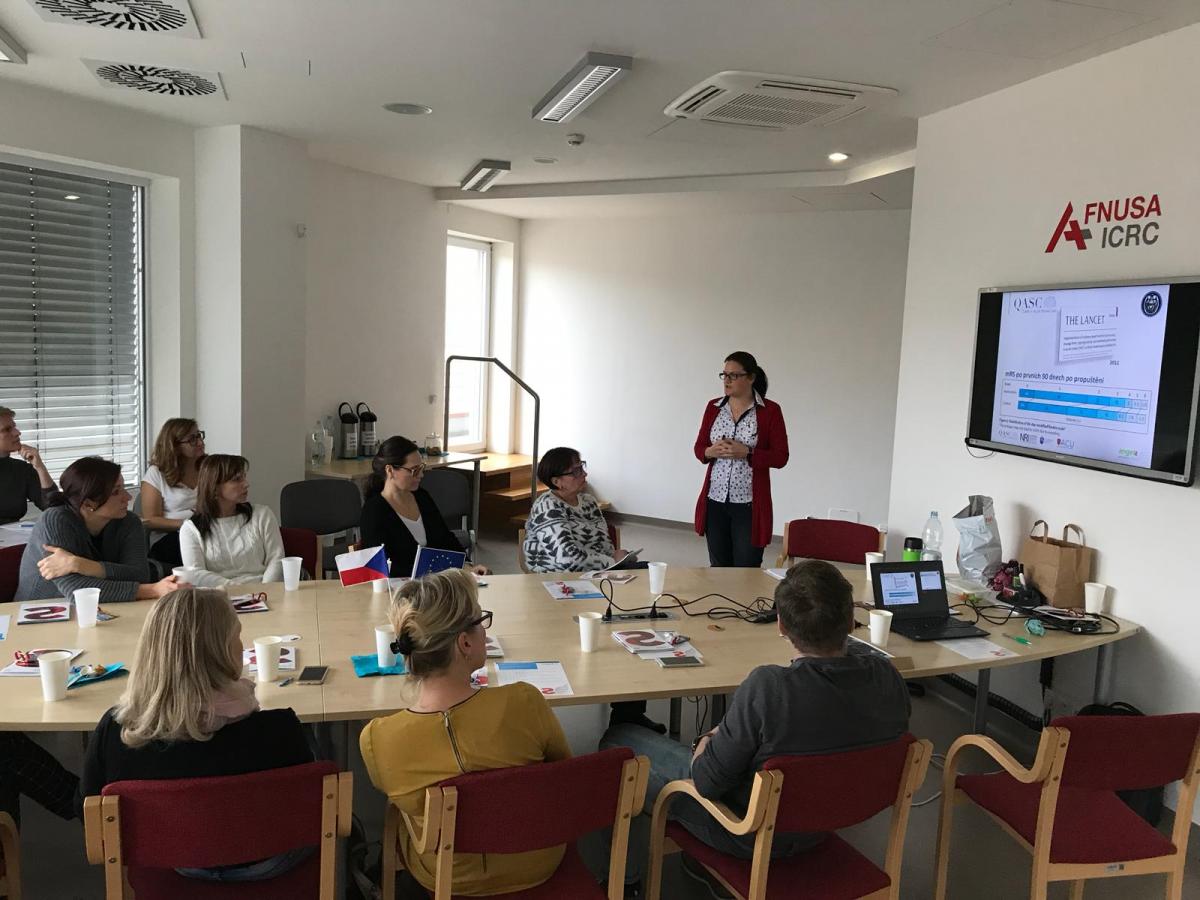
The third initiative aimed at nurses in Czech Republic was the enrollment in the Angels Online Stroke Nurse Certification course. Launched in 2018, the course is now available in 13 languages and has provided more than 6,000 nurses worldwide with critical stroke knowledge and practical patient care. This self-study course comprises of 20 modules and associated tests covering all aspects of stroke patient care. Nearly 150 nurses from 19 hospitals in Czech Republic have successfully completed the course and the numbers are still increasing. As of now, Masaryk Hospital in Ústí nad Labem holds the record for the highest number of certified nurses in Czech Republic, with 36 nurses having completed the course.
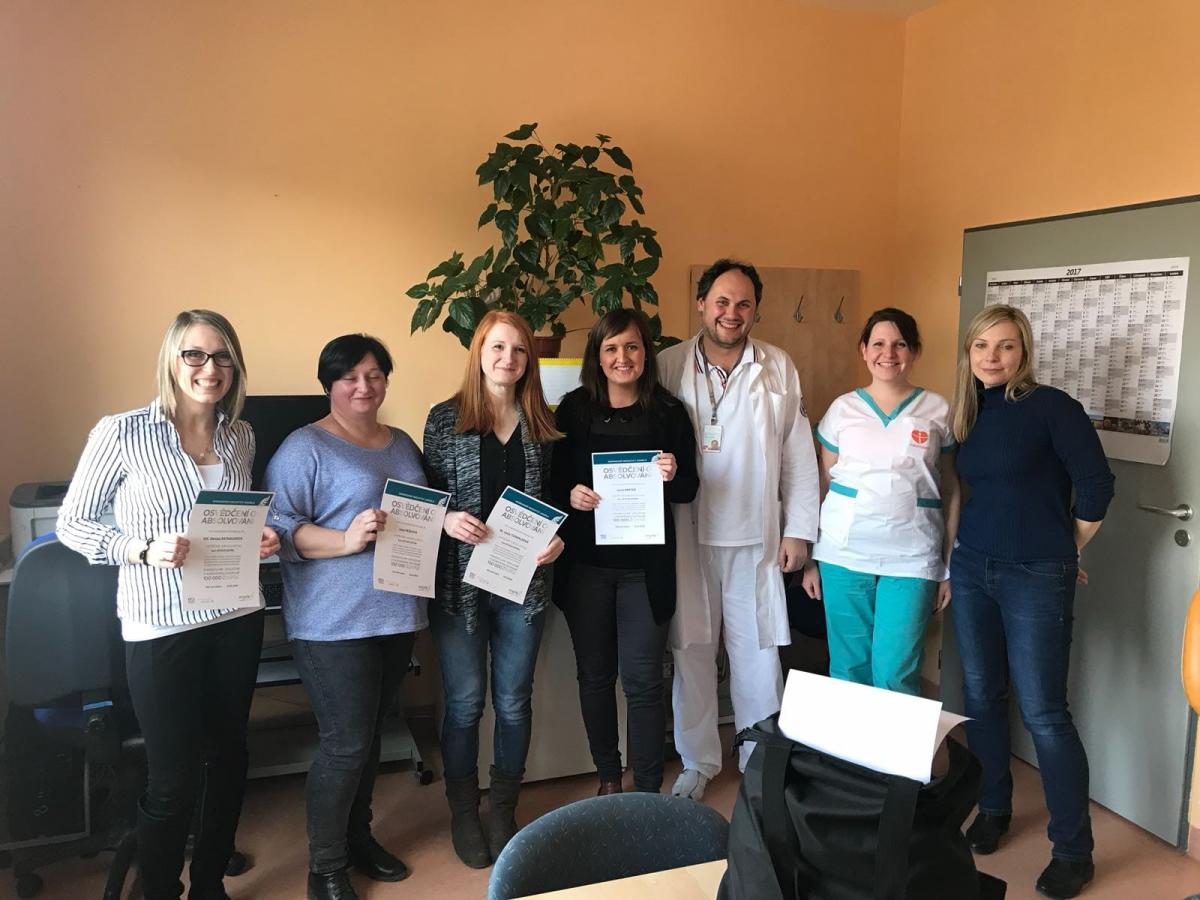
MUDr.Ing David Černík PhD., Head Physician of the stroke unit, attributed this as a key factor in reducing their treatment time by nearly half. “The most remarkable benefit for patient care was the reduction of median door-to-needle time from 27 to 15 minutes, which would not have been achieved without top-quality work of well-educated stroke nurses,” he asserted.
Stroke care requires multidepartment collaboration, therefore we sincerely believe optimal stroke care can only be delivered when all parties involved, including EMS and nurses, share a good level of motivation, knowledge and teamwork. We are very proud that nurses in Czech Republic have now formed their own community, to the point of establishing the first Angels Nurses Steering Committee in Europe. Nurses’ influence is spreading contagiously across Czech Republic, and we will continue doing our best to transmit it to the rest of Europe!
